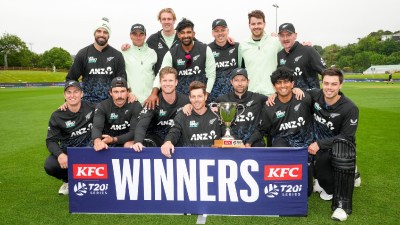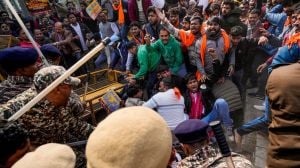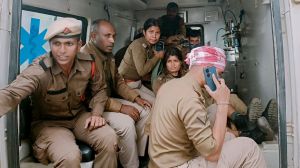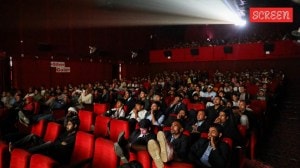The thaw and the talks
The sign on this road should read: curves ahead, drive with caution. When Union Home Minister L.K. Advani sits down to talk to the Hurriyat ...

The sign on this road should read: curves ahead, drive with caution. When Union Home Minister L.K. Advani sits down to talk to the Hurriyat Conference faction led by Abbas Ansari tomorrow, it will mark a historic moment in this country8217;s search for peace in a region that has been the theatre of several wars and almost-wars, a region that has not known tranquility and normalcy for well over five decades. It is not surprising, therefore, that it is the Kashmiris who have been the keenest observers of this process and all signals from the Valley indicate a cautious optimism. This is also because the interlocutor this time is the deputy prime minister, indicating the seriousness which the government is investing in this engagement.
These talks have to be seen as a parallel process to the composite dialogue that India will enter into with Pakistan in mid-February. While Pakistan has expressed its strong reservations over the Indian government8217;s talks with the Hurriyat since it wishes to be involved in them, the present format is a useful, calibrated one to adopt at the outset, given the intricacies and sensitivities involved in a dispute that involves so many players. India is not foreclosing any option. Not even the possibility of involving the hawks in the dialogue process at some stage. But, not surprisingly, it wishes to lay a strong foundation before proceeding to do so. Clearly, there are no quickfix solutions. No one, not even the most hopeful in the Valley, expects an overnight solution. The important point is that both sides display the stamina and commitment to this sitting down at the table. There are two roadblocks which should be recognised and factored into the process from the beginning. The first, of course, is the non-participation of the those regarded as hardliners within the original Hurriyat Conference who may make it their business to try and disrupt the talks and undermine their authority. The second is the General Election and the possibility of a change in the political guard. But the considerable consensus achieved for the process, both at the popular and political level, should act as a counter to either of these two realities dislocating the process.
As for the demand made by the Hurriyat leaders to visit Pakistan at some point of time in order to explain their stand there, the government should have no real objection once these talks get underway and concrete progress is registered. Three years ago, the government had refused this very demand and this had caused considerable resentment within the Hurriyat. But a great deal of change has occurred since then 8212; including of course an important election in J038;K, the possibility of a road link between the two Kashmirs and considerable progress towards a stable peace between India and Pakistan. New Delhi has suggested that it would not in principle be averse to the idea. It seems that the situation demands of the Hurriyat leaders some patience, and from New Delhi, some faith.
- 01
- 02
- 03
- 04
- 05































